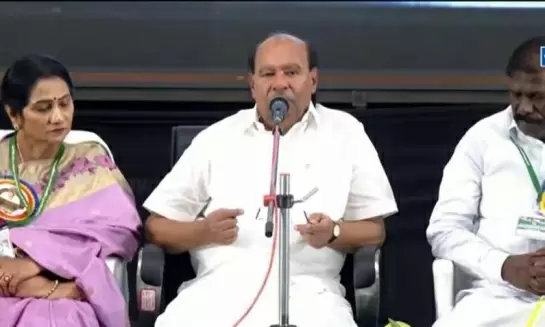Don't urinate in public, Gandhi said way back in 1925
01-October-2014
Mahatma Gandhi, a strong votary of hygiene and cleanliness, came out against the obnoxious Indian male habit of urinating in the open nearly 90 years ago.
"To pass urine anywhere on a street, at any place not meant for the purpose should be regarded an offence," Gandhi wrote in an article titled "Our Dirty Ways" in the Sep 13, 1925 issue of "Navajivan" weekly.
During the decades that Gandhi led India's freedom movement, he spent hours denouncing the "dirty ways" of Indians and appealing to them embrace healthy habits. Prime Minister Narendra Modi is appropriately invoking Gandhi to launch the 'Clean India' movement.
Here are some excerpts from his writings on the subject on which he felt strongly:
"No one should spit or clean his nose on the streets. In some cases the sputum is so harmful that the germs are carried from it and they infect others with tuberculosis. In some places spitting on the road is a criminal offence. Those who spit after chewing betel leaves and tobacco have no consideration for the feelings of others... Near the village or dwellings, there should be no ditches in which water can collect. Mosquitoes do not breed where water does not stagnate. Where there are no mosquitoes, the incidence of malaria is low." (Navajivan, Nov 2, 1919)
* * *
"I learnt 35 years ago that a lavatory must be as clean as a drawing room. I learnt this in the West. I believe that many rules about cleanliness in lavatories are observed more scrupulously in the West than in the East... The cause of many of our diseases is the condition of our lavatories and our bad habit of disposing of excreta anywhere and everywhere." (Navajivan, May 24, 1925)
* * *
"Both excretory functions should be performed only at fixed places. To pass urine anywhere on a street, at any place not meant for the purpose should be regarded an offence... Lavatories should be kept very clean. Even the part through which the water flows should be kept clean... Our lavatories bring our civilization into discredit, they violate the rules of hygiene." (Navajivan, Sep 13, 1925)
* * *
"Village tanks are promiscuously used for bathing, washing clothes and drinking and cooking purposes. Many village tanks are also used by cattle. Buffaloes are often to be seen wallowing in them. The wonder is that, inspite of this sinful misuse of village tanks, villages have not been destroyed by epidemics. It is the universal medical evidence that this neglect to ensure purity of the water supply of villages is responsible for many of the diseases suffered by the villagers." (Harijan, Feb 8, 1935)
* * *
"Many households are so packed with all sorts of unnecessary decorations and furniture which one can very well do without that a simple living man will feel suffocated in those surroundings. They are nothing but means of harbouring dust, bacteria and insects." (Dec 17, 1942)
* * *
"There is no gainsaying that we have not learnt the art of external sanitation to the degree the English have. What is so distressing is that the living quarters of the menials and sweepers employed in the Viceroy's House are extremely dirty. This is a state of affairs the ministers of our new government will not tolerate. Although they will occupy the same well-kept bungalows, they will see to it that the lodgings of their servants are kept as clean as their own." (Speech in New Delhi, Sep 3, 1946) - IANS
Bangladesh Army Watches As Yunus Administration Grapples With Violence, Chaos
Sri Lankan Navy Arrests 12 TN Fishermen, Impounds Trawler Near Dhanushkodi
Protests Outside Bangladesh High Commission in Delhi Over Lynching of Hindu Youth
Ragging Row Erupts at RG Kar Medical College; First-Year Students File Complaint
Intel Flags ISI Plot To Incite Anti-India Fury In Bangladesh, Push New Delhi Into Military Response









